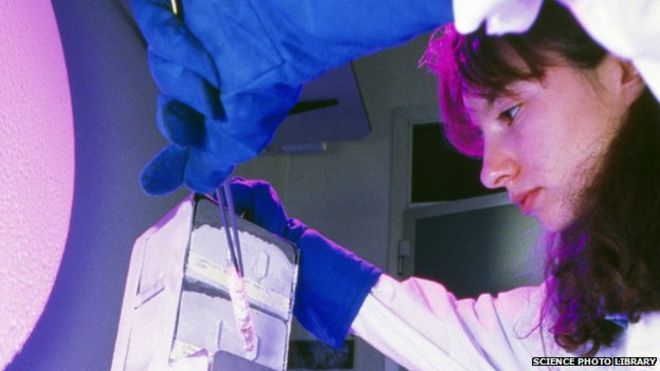News >> Kids
Baby born from ovary frozen in mother`s childhood
 10 Jun, 2015
10 Jun, 2015
A woman has become the first in the world to give birth to a baby using transplanted ovarian tissue frozen when she herself was still a child.
The 27-year-old had an ovary removed at age 13 just before she began invasive treatment for sickle cell anaemia.
Her remaining ovary failed following the treatment, meaning she would have been unlikely to conceive without the transplant.
Experts say this procedure could now help other young medical patients.
The woman, who has asked to remain anonymous, was diagnosed with sickle cell anaemia at the age of five.
She emigrated from the Republic of Congo to Belgium where doctors decided her disease was so severe that she needed a bone marrow transplant using her brother`s matching tissue.
But before they could begin the bone marrow transplant, they needed to give her chemotherapy to disable her immune system and stop it from rejecting the foreign tissue.
Chemotherapy can destroy the ovarian function, so they removed her right ovary and froze tissue fragments. At that time, she was showing signs of puberty, but had not yet started her periods. Her remaining ovary failed at 15.
Ten years later, she decided she wanted to have a baby, so doctors grafted four of her thawed ovarian fragments onto her remaining ovary and 11 fragments onto other sites in her body.
The patient started menstruating spontaneously five months later, and became pregnant naturally at the age of 27, giving birth to a healthy boy in November 2014.
The details of the case were published on Wednesday in the journal Human Reproduction.
The gynaecologist who led the treatment to restore the patient`s fertility, Dr Isabelle Demeestere, said it was now hoped the procedure could help other young people at risk of ovarian failure, especially given there is an increasing number of long-term survivors of haematological diseases diagnosed in childhood.
Around 40 babies have already been born around the world using frozen ovarian tissue taken from older women.
Source: BBC

